This year, I sought literature that reverberated with tenderness and rage. Reading afforded me much-needed quietude and pockets of silence in these increasingly fascist times, amidst a relentless, raucous political commentary that we can’t afford to turn off. We can’t afford ignorance, but we do still need spaces to dream, to reimagine the world, to counter erasures of stories we deserve and need to know, the ones omitted from the dominant culture’s record. As writers, we write ourselves and the stories we never saw ourselves in, the stories that are the most terrifying to tell. I craved intimate work that took me to subterranean, secret, otherworldly, historic, ancient, and syncretic corners of literature, where borders and identities dissolved into hybrid forms. I wanted to read work that made me feel connected to my body, my senses, and collective memories.
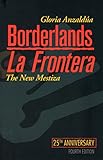
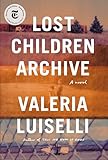
 I Lalla, the utterances of 14th-century Kashmiri mystic poet Lal Ded, translated by poet and translator Ranjit Hoskote, were a portal into another time, when a rebellious woman renounced her family duties to become a devotee—and yet, I read this work in the context of the present-day political turmoil not only in India-occupied Kashmir but throughout India, where student protestors are being violently beaten and tear gassed by the police because of their opposition to the Citizenship Amendment Bill, which will allow the Indian government to send people without paperwork to detention camps. Reading Lal Ded today, each line is as much a wound as it is a balm.
I Lalla, the utterances of 14th-century Kashmiri mystic poet Lal Ded, translated by poet and translator Ranjit Hoskote, were a portal into another time, when a rebellious woman renounced her family duties to become a devotee—and yet, I read this work in the context of the present-day political turmoil not only in India-occupied Kashmir but throughout India, where student protestors are being violently beaten and tear gassed by the police because of their opposition to the Citizenship Amendment Bill, which will allow the Indian government to send people without paperwork to detention camps. Reading Lal Ded today, each line is as much a wound as it is a balm.
I revisited iconic feminist works that have never felt more prescient, including Borderlands/La Frontera: The New Mestiza by Gloria Anzaldúa, which interrogates the U.S.-Mexico border: the history of white supremacist imperialism and indigenous genocide, feminist theory, and femme divine mythologies. Valeria Luiselli’s Lost Children Archive documented the heartbreaking dissolution of a family on a road trip across these desert borderlands, and I ached the entire book through, holding its heart—the children savagely separated from their parents at the border—close to my own. Another spectacular novel set in the desert, The Other Americans by Laila Lalami, masterfully weaves a polyphonic tapestry of narrators sharply divided by race, religion, class, desire, and aspirations, unfurling the story of a Moroccan immigrant killed in a hit-and-run. Imagining a Muslim family’s tragedy in the Mojave Desert felt like a necessary complement—one that I’ve never read before—to the post-9/11 literature set in New York City. Lalami’s structure summoned another masterful work of art, Kurosawa’s Rashomon. I loved how both of these novels draw the desertscape, in all of its solitude and endlessness and metaphors. Desertscape forms over millions of years, a steady denuding of the earth into monochromatic wasteland, where everything is wildly alive, but camouflaged, in plain sight.
 Saidiya Hartman’s Wayward Lives, Beautiful Experiments opened a radical door of perception into early 20th-century black women’s intimacy as revolution, how their love and queerness and kinship was the heart of their survivorship against societal and state violence. Femme in Public, a poetry collection by ALOK, a nonbinary transfemme poet, performance artist, educator, and cultural theorist, probes the urgent question that I find myself wondering every time I show up to the page: What feminine part of yourself did you have to destroy in order to survive in this world? Each poem is a dart of truth puncturing the systemic, colonial violence of the gender binary, one of the first ways we learn to erase ourselves.
Saidiya Hartman’s Wayward Lives, Beautiful Experiments opened a radical door of perception into early 20th-century black women’s intimacy as revolution, how their love and queerness and kinship was the heart of their survivorship against societal and state violence. Femme in Public, a poetry collection by ALOK, a nonbinary transfemme poet, performance artist, educator, and cultural theorist, probes the urgent question that I find myself wondering every time I show up to the page: What feminine part of yourself did you have to destroy in order to survive in this world? Each poem is a dart of truth puncturing the systemic, colonial violence of the gender binary, one of the first ways we learn to erase ourselves.



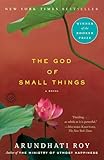
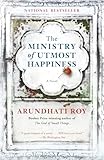 After Toni Morrison’s passing, I read her collected essays and speeches, The Source of Self-Regard, each night before bed, unmoored by the breadth and brilliance of her mind. Her nonfiction is a clarion light that has never felt more eternal, and it made me want to read her fictive masterpiece Beloved, for which I made a perfume (for an event in her honor) composed of notes in the book: sweet grass, salt water, rose, and blood cedar. There is no other writer who threads the olfactory with such elegant and devastating precision. Similarly, Arundhati Roy’s collected nonfiction My Seditious Heart reignited my blaze for her intellectual fire and activism and infinitely readable voice—and the collection illuminates her decades-long commitment to freedom and social justice. This work is a nonfictional journey between her two great works of fiction, The God of Small Things and The Ministry of Utmost Happiness.
After Toni Morrison’s passing, I read her collected essays and speeches, The Source of Self-Regard, each night before bed, unmoored by the breadth and brilliance of her mind. Her nonfiction is a clarion light that has never felt more eternal, and it made me want to read her fictive masterpiece Beloved, for which I made a perfume (for an event in her honor) composed of notes in the book: sweet grass, salt water, rose, and blood cedar. There is no other writer who threads the olfactory with such elegant and devastating precision. Similarly, Arundhati Roy’s collected nonfiction My Seditious Heart reignited my blaze for her intellectual fire and activism and infinitely readable voice—and the collection illuminates her decades-long commitment to freedom and social justice. This work is a nonfictional journey between her two great works of fiction, The God of Small Things and The Ministry of Utmost Happiness.
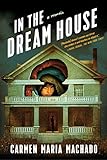

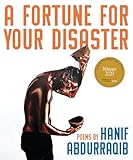
 Carmen Maria Machado’s memoir In the Dream House is a heart-wrenching, hybrid work that moved me to my core as a survivor. Over the years, I’ve learned that there is no greater feeling of solidarity than being able to bear witness to another survivor’s experience, and in the wake of so many public reckonings with abusers, to read a work that goes inward so inventively was a total wonder. When I think of how I learned to read and write, healing or holding space for trauma were not a part of the writer’s project, but the old rules don’t seem to matter as much to me anymore, we cannot afford to hold our tongues. Fariha Róisìn’s poetry collection How to Cure a Ghost bares and bears everything, and it felt like I’d found a book waiting for me my whole life, a way of seeing that reflects the world as I’ve lived in it, as a Bangladeshi, brown, bodied, Muslim femme person.
Carmen Maria Machado’s memoir In the Dream House is a heart-wrenching, hybrid work that moved me to my core as a survivor. Over the years, I’ve learned that there is no greater feeling of solidarity than being able to bear witness to another survivor’s experience, and in the wake of so many public reckonings with abusers, to read a work that goes inward so inventively was a total wonder. When I think of how I learned to read and write, healing or holding space for trauma were not a part of the writer’s project, but the old rules don’t seem to matter as much to me anymore, we cannot afford to hold our tongues. Fariha Róisìn’s poetry collection How to Cure a Ghost bares and bears everything, and it felt like I’d found a book waiting for me my whole life, a way of seeing that reflects the world as I’ve lived in it, as a Bangladeshi, brown, bodied, Muslim femme person.
Poetry and essay are both forms that Hanif Abdurraquib renders with such elegant melancholy and beautiful rhythm, and I loved his poetry collection A Fortune for Your Disaster, as well as his essay series on the Paris Review, Notes on Pop, about songs and memory. My last book for the year will be published in 2020, My Baby First Birthday, a poetry collection by Jenny Zhang. It’s a radiant and resolute work that had me questioning everything, like what life means when you didn’t ask to be born; how we must translate ourselves for whiteness and patriarchy through our trauma, which can feel like selling ourselves out when we are never replenished by a system that asks us to sacrifice so much. And yet, these poems are a soothsaying for the future we want to live in, where we understand the innate beauty of our planet, of ourselves, our friendships, where we forgive our own transgressions, remembering to stay tilted towards the light.
More from A Year in Reading 2019
Don’t miss: A Year in Reading 2018, 2017, 2016, 2015, 2014, 2013, 2012, 2011, 2010, 2009, 2008, 2007, 2006, 2005









